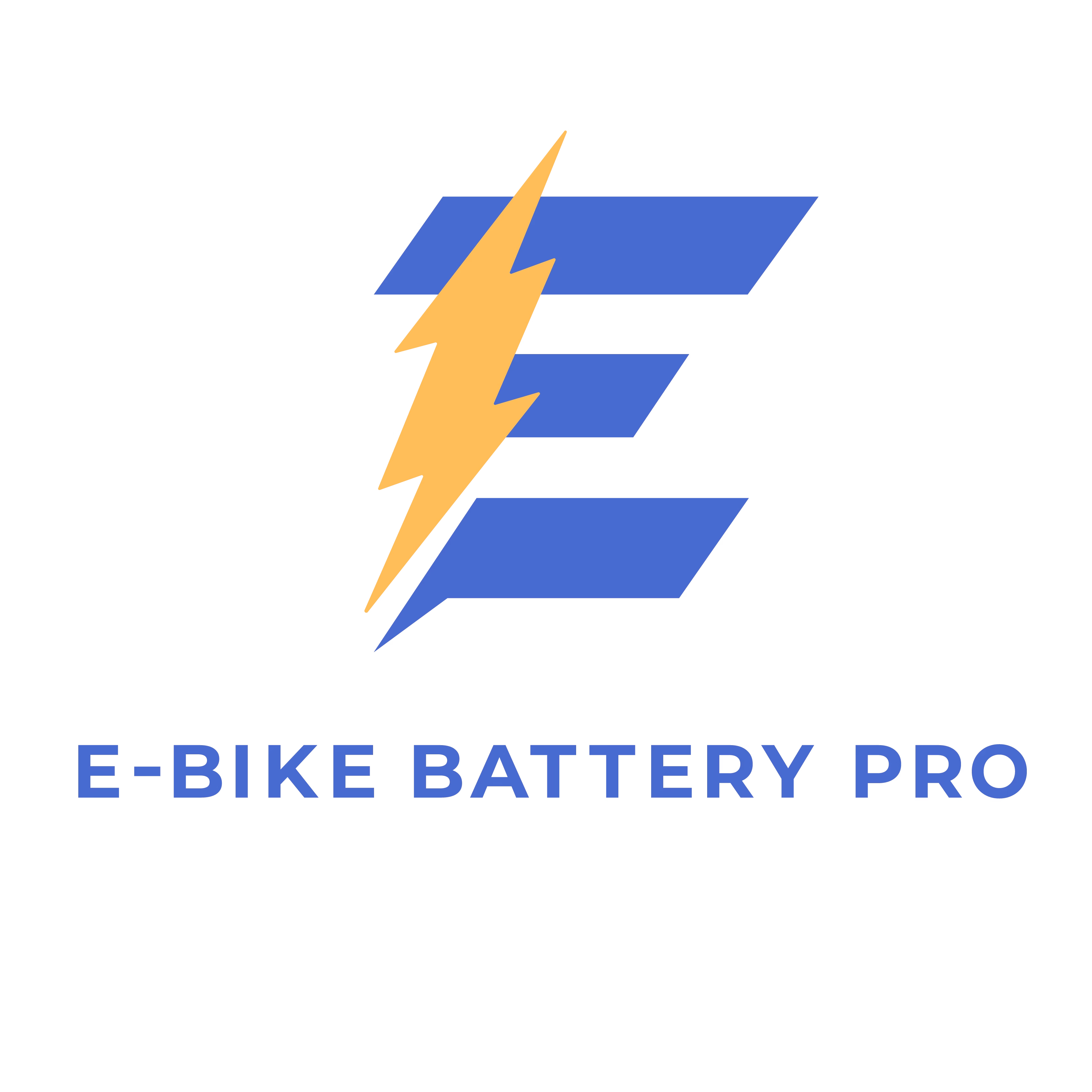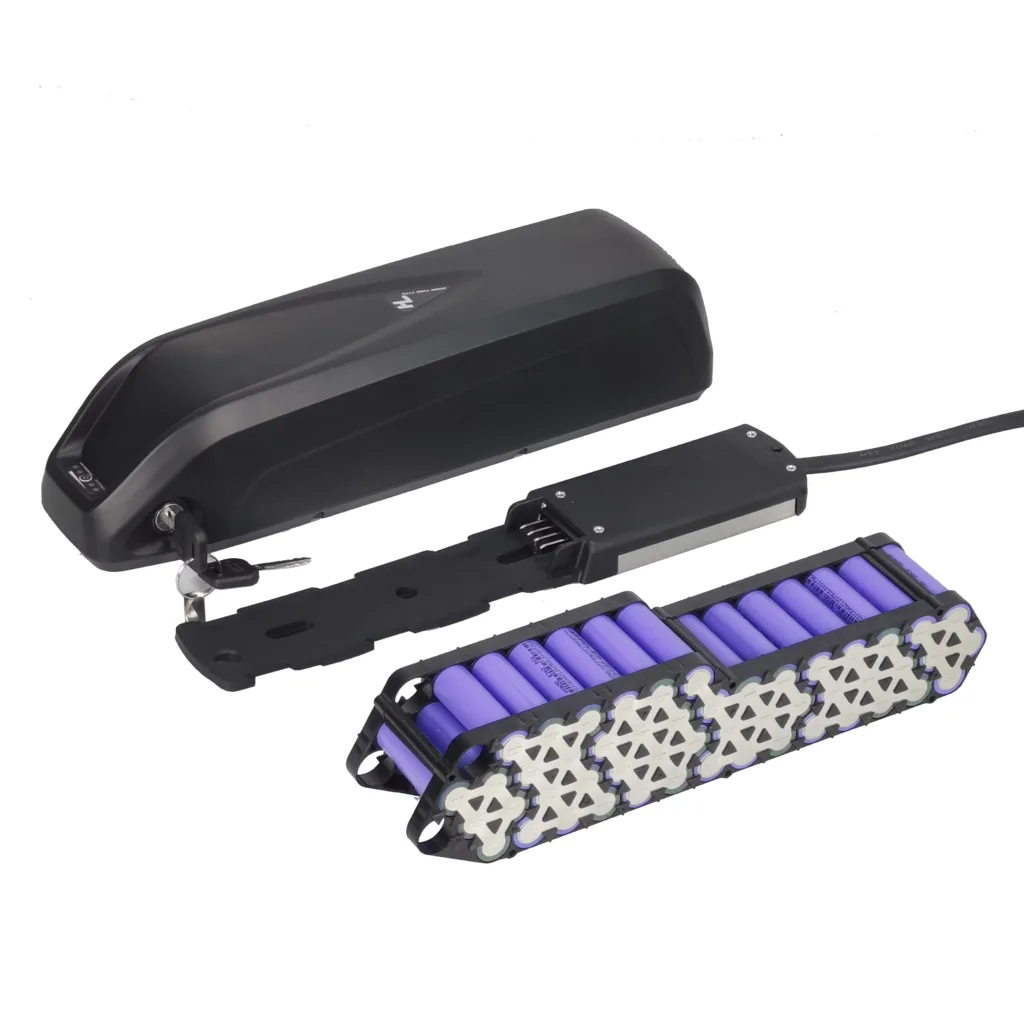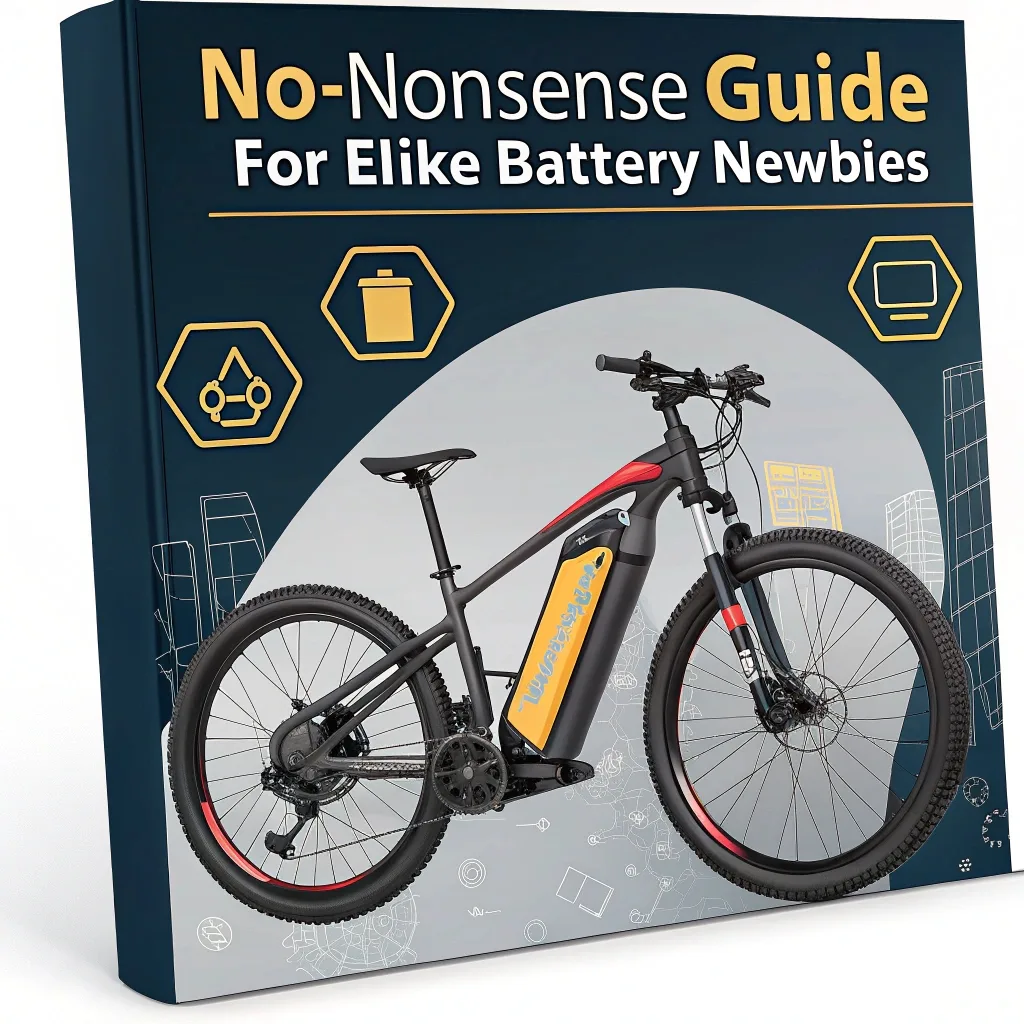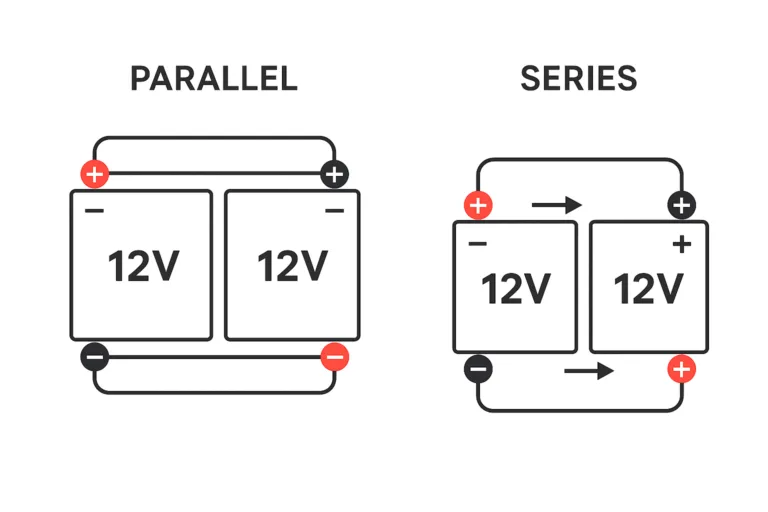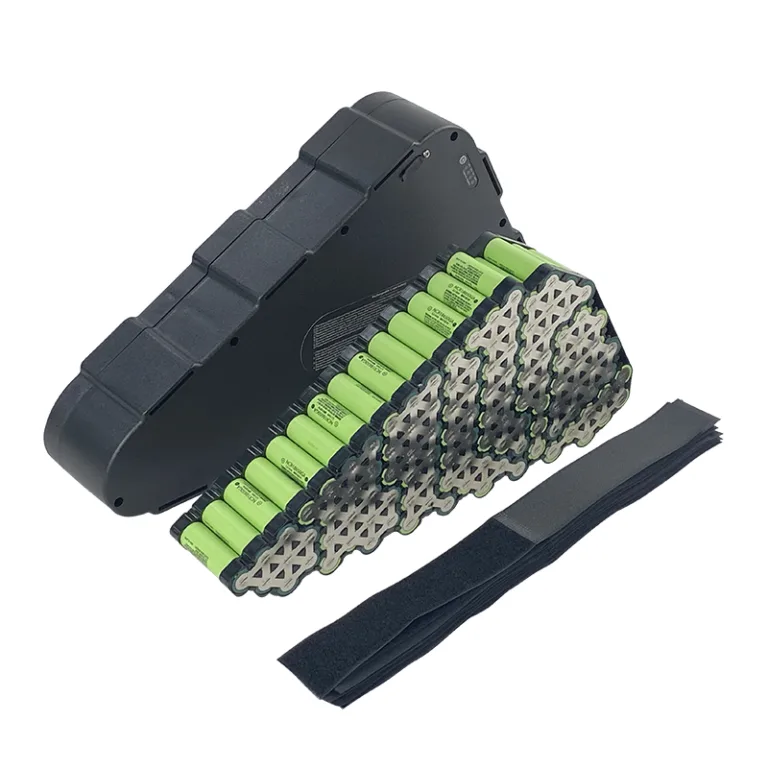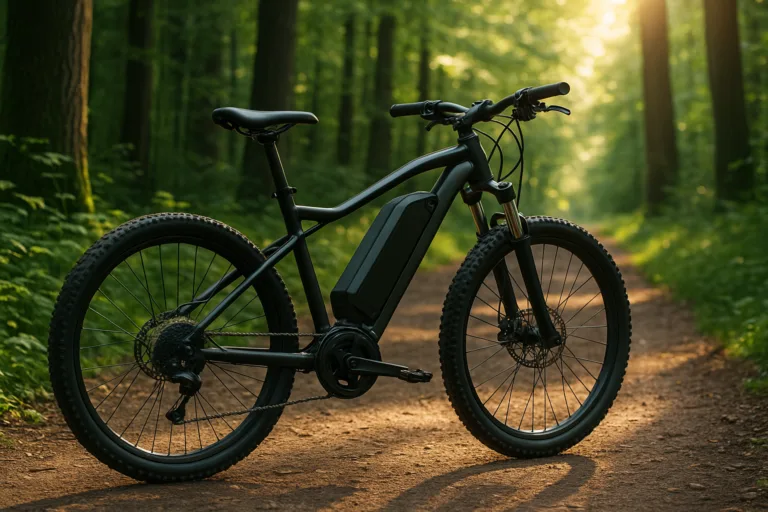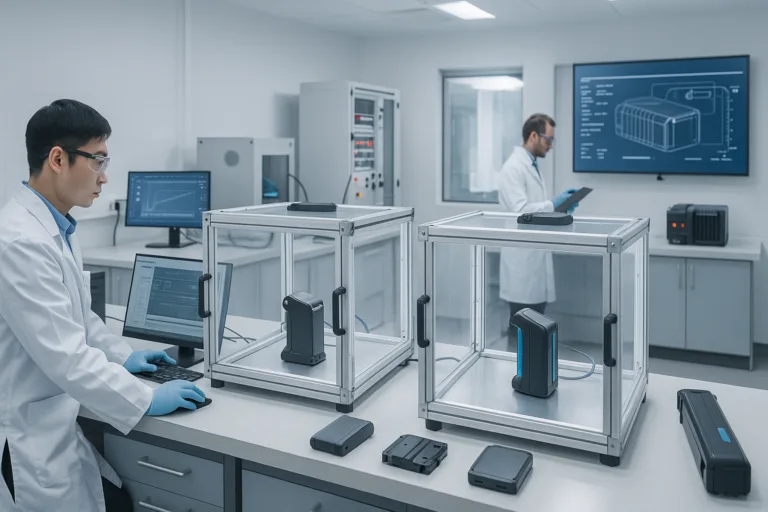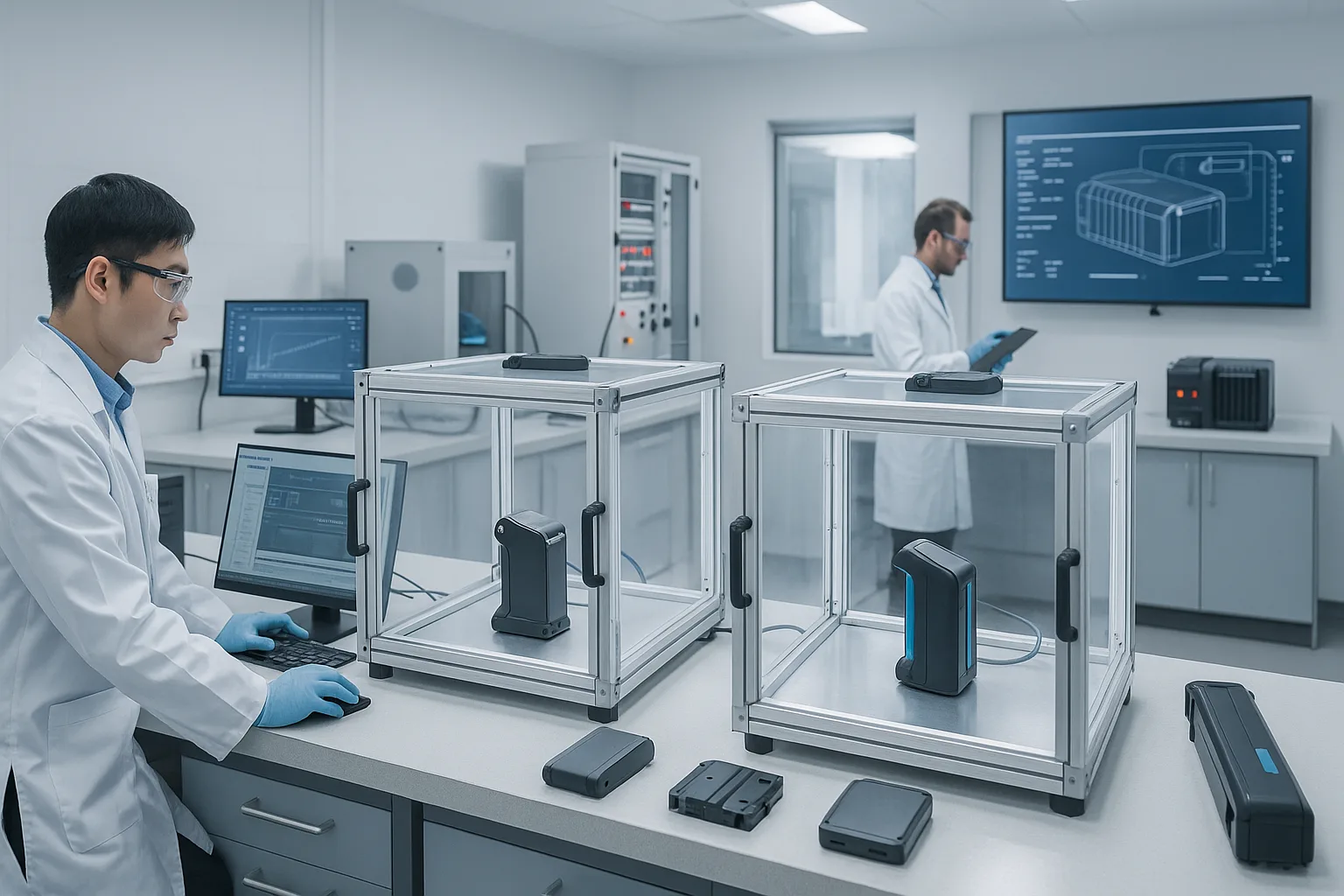
Buying or selling e-bike batteries without understanding safety standards can lead to compliance issues, battery failures, or even serious safety incidents.
Key safety standards include EN 15194 in Europe, UL 2849 in North America, and ISO 4210 internationally, which regulate battery safety, electrical systems, and overall e-bike construction.
Early in my career, I overlooked these standards and faced costly delays. Here's what you need to know to avoid similar pitfalls.
What Are the European eBike Standards?
Understanding European standards is essential if you're selling batteries or complete e-bikes to Europe.
The primary European standard for e-bikes and batteries is EN 151941, outlining specific requirements for electrical safety, battery performance, and structural integrity.
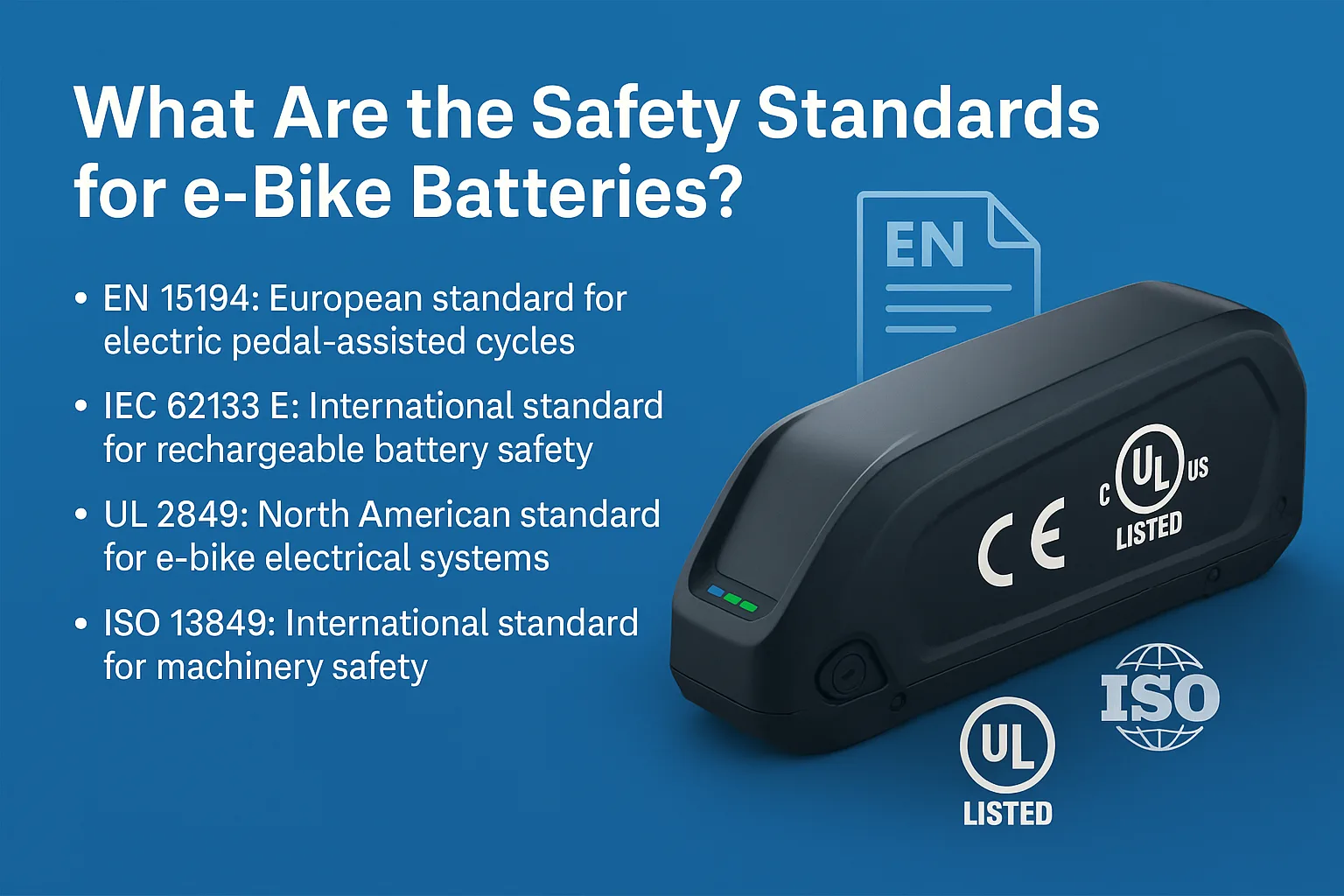
Key Requirements of EN 15194
EN 15194 applies to e-bikes with assistance up to 25 km/h and motors rated up to 250W. It covers these main points:
- Electrical Safety: Ensuring protection against electric shock and short-circuiting.
- Battery Testing: Includes vibration, temperature, and overcharge tests.
- Labeling: Clear and mandatory marking of technical specifications.
| Requirement | Description |
|---|---|
| Maximum Speed | 25 km/h assisted speed |
| Motor Power | Max 250 Watts |
| Battery Compliance | Must withstand vibration, heat, and overcharging |
What is the Safety Standard for eBike Batteries?
Battery safety is critical to your customers’ trust and legal compliance.
Key battery safety standards include UN38.32, CE marking (Europe), and UL 2271 or UL 2849 (USA), ensuring safe transport, storage, and operational safety of lithium-ion e-bike batteries.
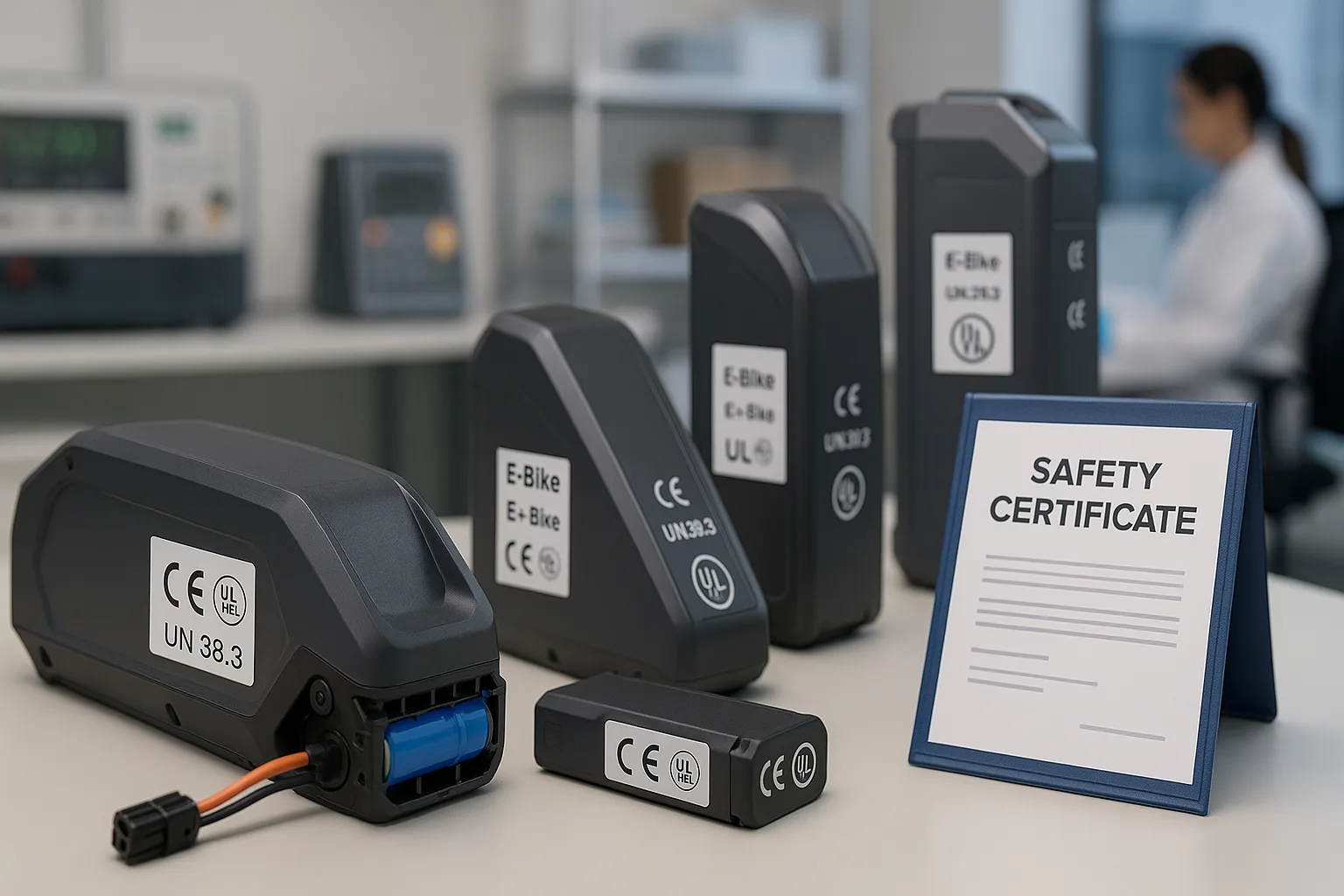
Key Safety Tests for Battery Standards
Here’s a quick look at battery-specific safety requirements:
- UN38.3 Certification: Essential for lithium-ion battery transportation.
- CE Marking: Required for battery sales in Europe.
- UL 2271/UL 2849: US and Canadian safety tests for lithium-ion battery packs and systems.
| Standard | Region | Key Focus |
|---|---|---|
| UN38.3 | Global | Safe transportation |
| CE Marking | Europe | Product safety and quality |
| UL 2271/UL 2849 | North America | Battery and system safety |
What is UL 2849 Standard for Electrical Systems for e-Bikes?
Entering the North American market? You'll need UL 2849.
UL 2849 specifically addresses the safety of e-bike electrical systems, including battery packs, wiring, chargers, and electronic control units, reducing the risk of fire and electrical hazards.
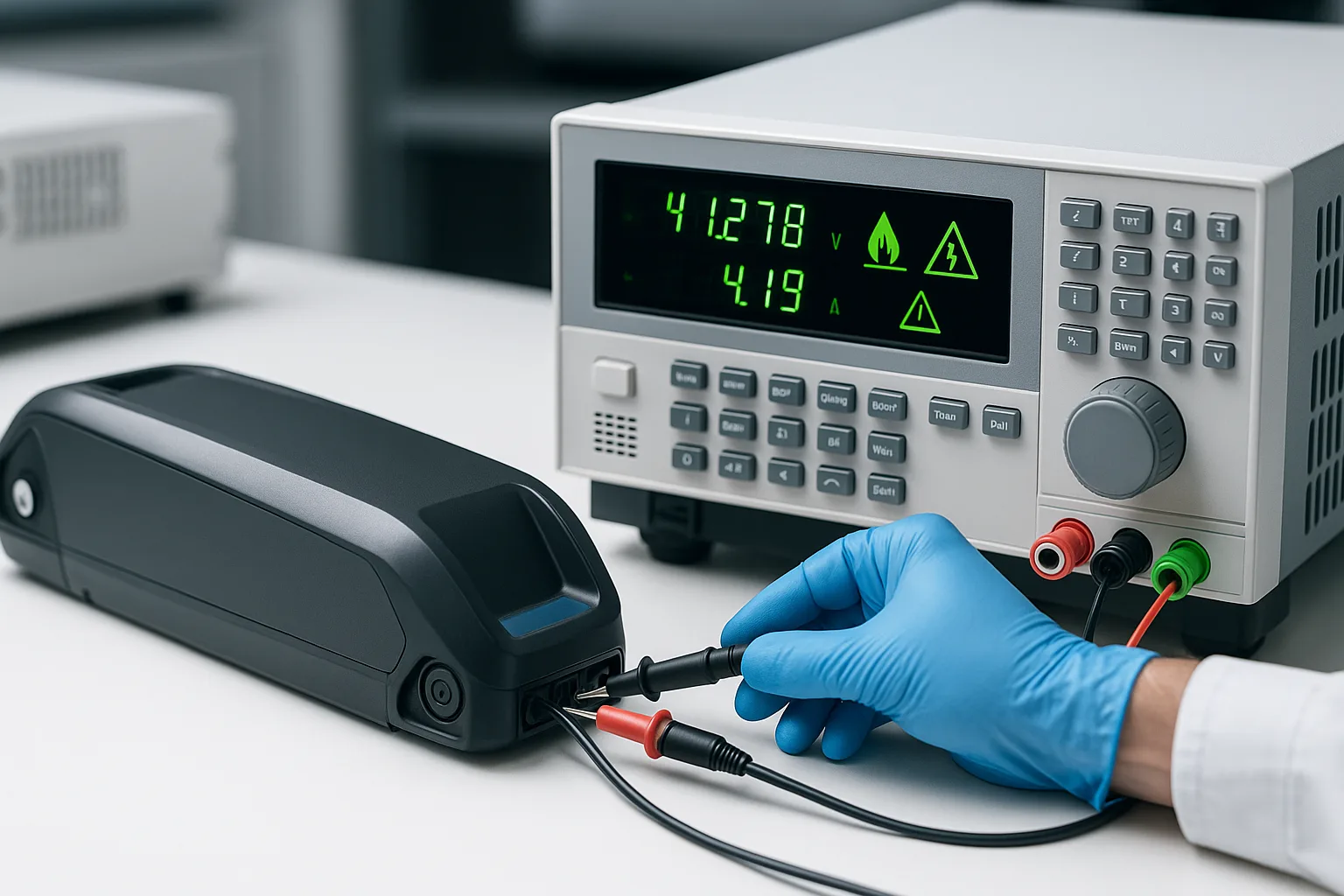
Components Covered by UL 2849
UL 2849 involves extensive safety testing of these key components:
- Battery Packs: Testing for overcharge, short-circuits, and thermal stability.
- Chargers and Adapters: Evaluated for electrical safety under normal and abnormal conditions.
- Electrical Wiring and Connectors: Assessed for protection against moisture, fire, and electrical shocks.
Example Checklist: UL 2849 Testing Criteria
- ✅ Battery Thermal Management
- ✅ Wiring Protection
- ✅ Component Fire Resistance
What is the ISO Standard for e-Bikes?
Global businesses must understand ISO standards to ensure international market acceptance.
ISO 42103 is the international standard for bicycles, including e-bikes, covering mechanical safety, testing methods, and requirements for brakes, frames, and structural integrity.
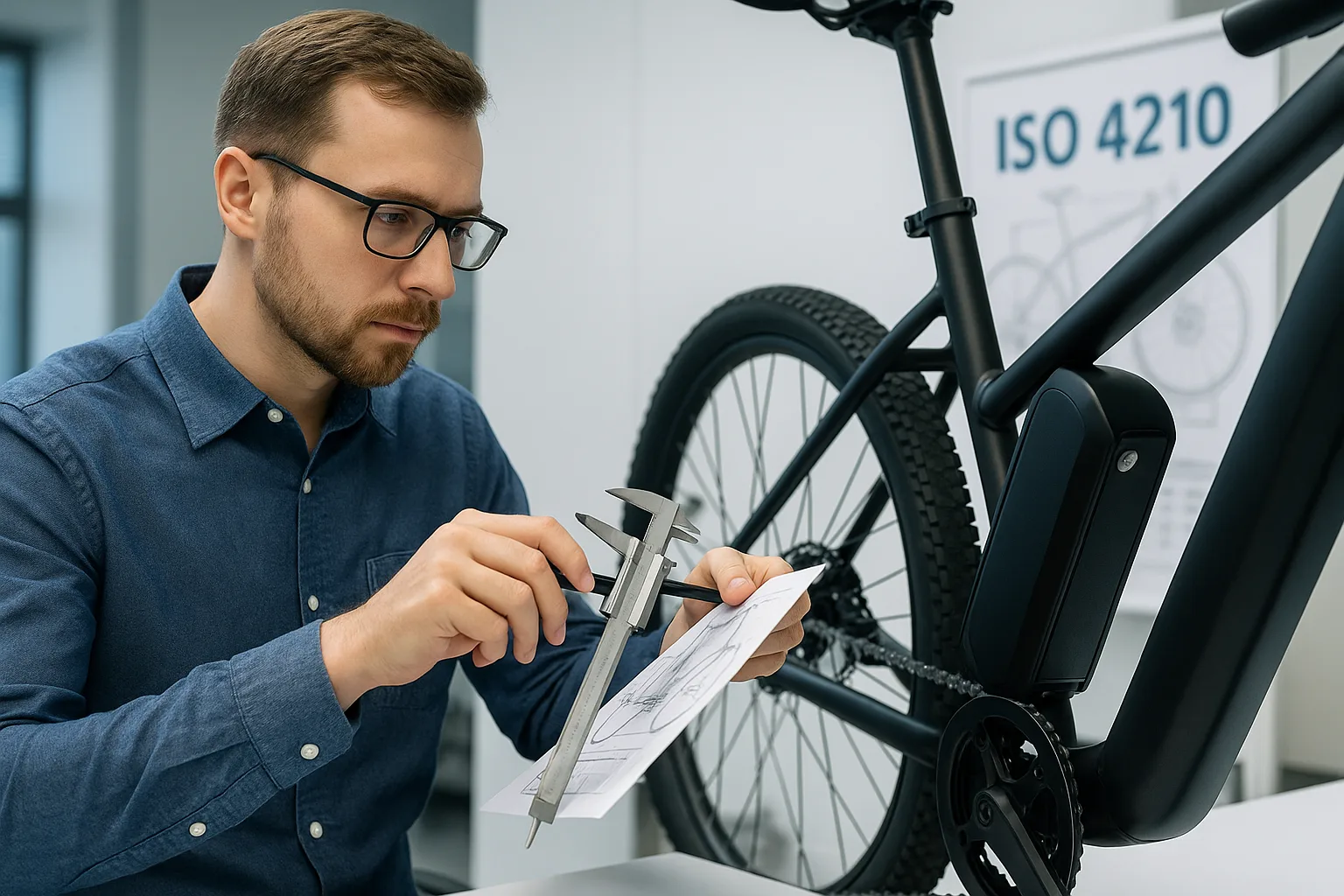
Why ISO 4210 Matters for e-Bikes?
ISO 4210 complements electrical standards by ensuring overall mechanical safety. Here's a summary:
- Frame and Fork Tests: Ensures durability and resistance to impacts.
- Brake Testing: Verifies braking effectiveness under loaded conditions.
- Mechanical Integrity: Overall assessment of moving parts under stress conditions.
| ISO 4210 Test | Purpose |
|---|---|
| Frame Impact | Ensure frame resilience to impacts |
| Brake Performance | Verify stopping effectiveness |
| Durability Tests | Confirm long-term structural reliability |
Conclusion
Understanding e-bike battery safety standards ensures compliance, market success, and customer safety, ultimately protecting your brand and your investment.
-
Explore this link to understand the detailed requirements of EN 15194, crucial for compliance in the European e-bike market. ↩
-
Learn about UN38.3 certification to ensure safe transportation of lithium-ion batteries, vital for e-bike manufacturers and sellers. ↩
-
Discover the importance of ISO 4210 standards for e-bikes, ensuring mechanical safety and compliance in global markets. ↩
